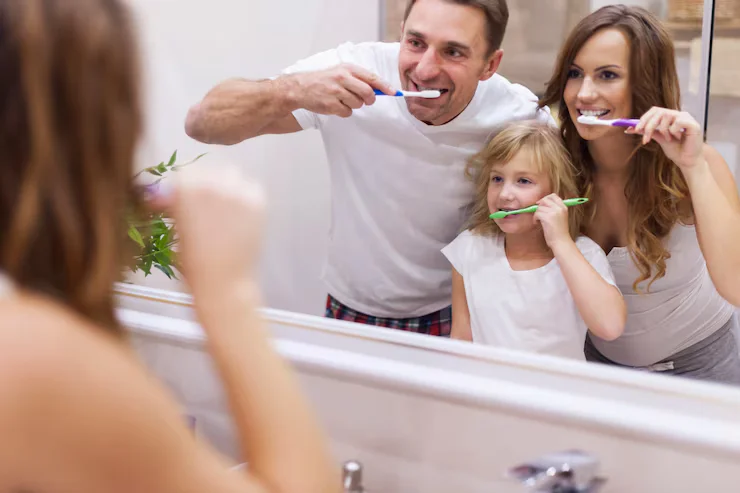We all have one set of baby teeth that come in between the ages of six months and three years. Then, from around the ages of five through 12, those baby teeth fall out and are replaced by permanent ones. Once our permanent teeth grow in, they need to last us for the rest of our lives. The teeth are the only part of the human body that can’t repair themselves, so if they’re damaged, we don’t get a second chance.
Our teeth are essential to so many aspects of our lives. They’re crucial for eating and getting the nutrition we need. They help us communicate both verbally and nonverbally. They also affect our appearance and self-confidence. Still, an estimated 90 percent of adults and 60 percent of children suffer from dental issues that are typically avoidable. With preventative dental care, we can usually keep our teeth, and by extension ourselves, healthy.
Routine Dental Visits
Routine dental visits are a vital component of preventative care. Having dental checkups and cleanings every six months is recommended. Those visits should start by the age of one.
Regular checkups allow dentists to catch problems early on and treat them before they grow worse. Routine cleanings remove plaque and tartar buildup to help prevent cavities, gum disease, and other issues. In some cases, dentists can even spot warning signs of serious health problems, such as diabetes and heart disease. With that being the case, routine dental care isn’t just important for oral health; it’s essential for overall wellness.
Don’t stop here—take a look at what else we’ve got for you!
Proper Brushing
Regular visits to the dentist go a long way toward maintaining oral health, but they’re only one piece of the puzzle. Brushing your teeth properly at home is also important. Experts recommend brushing twice a day, once in the morning, and once before going to bed. That gets rid of buildup on the teeth to help prevent decay. It also minimizes harmful germs in the mouth that can lead to infections, bad breath, and other problems.
When brushing, you should use a toothbrush with soft bristles and a good fluoride toothpaste. Be sure to cover all surfaces of the teeth as well as the gumline. Waiting 30 minutes after eating or drinking to brush and 30 minutes after brushing to eat or drink is advised. Children should be taught proper brushing techniques as soon as they’re able to brush their own teeth.
Flossing and Mouthwash
Brushing can only go so far. Even the best toothbrushes and brushing techniques can’t reach bacteria and buildup between the teeths. That’s where flossing and mouthwash come into play.
Floss carefully between each of your teeth at least once per day using up-and-down motions. Use mouthwash after brushing and flossing for added protection, but avoid using it too frequently to prevent gum and mouth irritation. Children should always be supervised when using mouthwash, and be sure to use child-friendly versions for added safety.
Keeping Your Teeth Healthy
Since we don’t get second chances with our teeth, taking care of them is important. The measures listed here are among the most effective ways to do that. Combining professional dental visits with at-home preventative care can keep your teeth healthy for life, and that should start as soon as the first baby teeth come in. At the same time, your dentist can recommend additional measures to preserve your teeth and promote ongoing oral health.
There’s plenty more where that came from—browse our other helpful content!







